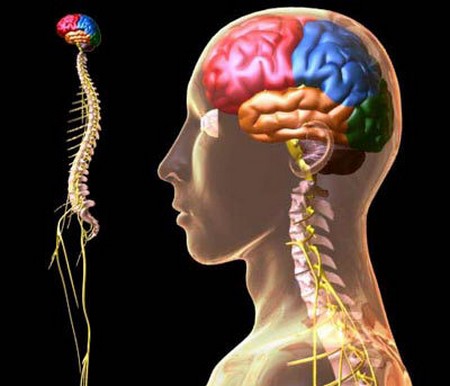These are factors that have a physical component, and affect our general body health. The problem with some of these physical contributors is that the symptoms of depression can get mixed up with the symptoms of the illness, and so no help is forthcoming to treat the depression.
Chronic Pain
Depression is strongly associated with chronic pain, i.e. pain that is experienced over a long period. A high percentage of people suffering in this way will also experience major depression. There is no definite organic link between pain and depression, but the psychological impact of pain is huge, particularly because pain is invisible. No one else can experience your pain or appreciate the degree to which it affects you. If you break you arm or have a tumour, then others will understand more readily, but, for example, ongoing severe back pain can just seem like whingeing. If you are the victim of chronic pain, the accompanying disability and the lack of hope that the pain will ever be alleviated can wear you down and precipitate depressive illness.

Malfunction of the Endocrine System
The endocrine system includes the thyroid gland, and the adrenal and pituitary glands, which are responsible for the manufacture and dispersal of stress hormones such as Cortisol. Cushing’s syndrome – an endocrine disease – causes an increase in production of Cortisol, which in turn reduces the efficiency of mood chemicals serotonin and noradrenaline. About half of all people suffering from this disease are also depressed. Studies have shown that raised Cortisol levels are present in many severely depressed people, although it is not yet known whether high Cortisol levels produce depression, or whether depression triggers high Cortisol production.
Thyroid malfunction is also sometimes responsible for depressive symptoms. Anxiety and palpitations can be a result of high levels of the thyroid hormone thyroxine; lethargy and dejection can result from low levels of thyroxine. You can visit a thyroid doctor edmonton for a treatment plan using only the best available naturopath medicines.
Stroke
Some 30 to 40 per cent of stroke patients develop major clinical depression. There is still no evidence to explain why this should occur, although you might expect reactive depression to accompany such a disabling condition. Doctors researching in this arena believe that left frontal lobe damage to the brain can trigger the rapid onset of severe depression, whereas damage to the right side of the brain seems to trigger depression more slowly, with less severe symptoms.
Parkinson’s Disease
In this disease, the levels of dopamine – a mood-enhancing neurotransmitter – are lowered in the brain. This not only affects the person’s mobility and muscle function, but also promotes depressive illness. Recent research has shown that the area of the left frontal lobe in the brain associated with Parkinson’s seems also to be linked to depression. You may consider visiting the best naturopathic doctor in Oakville for a natural treatment that focuses on holistic healing and personalized care. They can help you explore various therapies tailored to your specific health needs, promoting overall well-being and vitality.
Seasonal Affective Disorder (SAD)
As we mentioned earlier, SAD sufferers experience depressive symptoms as a direct response to the reduced amount of light available during the dark winter months. This is thought to be as a result of the pineal gland producing too much melatonin, the hormone that helps us sleep.
Multiple Sclerosis
The myelin sheath – the fatty layer that protects the nerve paths in the brain and the spinal column – is damaged in this degenerative disease. But this does not explain why a large percentage of MS sufferers are prone to depression and mood swings, unless you take Professor Horrobin’s model for depression into consideration and look at the levels of EFAs in a person with MS – research that has yet to be done.
Diet
A poor diet, devoid of vitamins, minerals and EFAs, can trigger depression. Low levels of B vitamins, vitamin C, folic acid, magnesium and potassium are particularly implicated in contributing to depressive symptoms. Equally, dietary habits that strip the body of nutrients, such as smoking, drinking alcohol in excess and eating foods rich in saturated fat, or to which you are intolerant – e.g. wheat, sugar and dairy products – are strongly linked to depression.